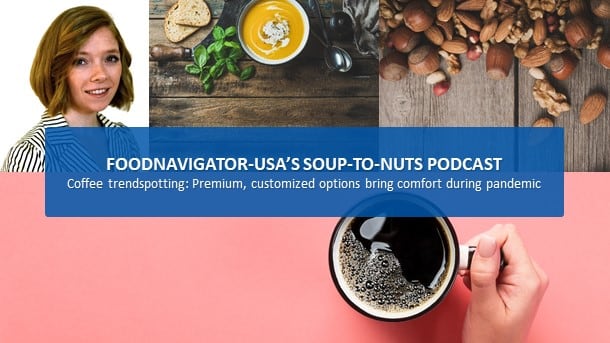The new study’s controversial conclusion that pregnant women should not consume any caffeine is “fundamentally flawed” and flies in the face of “decades of independent scientific research [that] has repeatedly shown moderate coffee consumption is not associated with increased health risks for pregnant women,” NCA president and CEO William Murray said in a written statement.
“In fact,” he adds, the research published Aug. 24 runs counter to “guidance from organizations including the American Cancer Society … that drinking coffee is associated with multiple health benefits, including decreased risk of endometrial and other cancers.”
He concluded: “Women’s health deserves guidelines based on science, not bias.”
On this, the study’s author, Jack James, a professor at Reykjavik University in Iceland, agrees, noting in the opening of his research that “caffeine is a habit-forming substance consumed daily by the majority of pregnant women. Accordingly, it is important that women receive sound evidence-based advice about potential caffeine-related harm.”
To determine if current advice from the American College of Obstetricians and Gynecologists, the European Food Safety Authority and others that pregnant women safely can consume up to 200 mg of caffeine, or roughly two cups of moderate-strength coffee per day, is “soundly based,” James analyzed 48 original observational studies and meta-analyses of maternal caffeine consumption from the past 20 years.
He found 32 of the 37 observational studies indicated “significantly increased caffeine-related risk” and 10 suggested no or inconclusive associations. In addition, 14 out of 17 meta-analyses found maternal caffeine consumption was associated with increased risk of miscarriage, stillbirth, low birth weight or small for gestational age and childhood acute leukemia.
While James recognized that the research is based on observational data, and therefore cannot support causation, he noted that there were “frequent reports of significant dose-response associations suggestive of causation” in the observational studies and meta-analysis, as well as “frequent reports of no threshold of consumption below which associations were absent.”
As such, he concluded that “current evidence does not support health advice that assumes moderate caffeine consumption during pregnancy is safe. On the contrary, the cumulative scientific evidence supports pregnant women and women contemplating pregnancy being advised to avoid caffeine.”
Research preemptively addresses industry’s top concerns
As if in anticipation of NCA and industry stakeholders’ push-back against his conclusion, James tackles head on in his study “the role of industry in the caffeine and pregnancy narrative, especially with regard to questions of causation.”
He explains that soft drink manufacturers in the late 1970s funded the establishment of the International Life Sciences Institute, which also includes through its Caffeine Working Group the National Coffee Association.
“ILSI has supported the production of a body of published articles depicting caffeine as a benign substance posting little or no threat to fetal health and development. Scientific evidence to the contrary has been portrayed in that literature as methodologically flawed due to confounding from uncontrolled variables,” including maternal cigarette smoking, potential recall bias and pregnancy symptoms that could influence caffeine consumption, he writes.
In response to James’ research, the NCA argued all three points to support its claim that the findings were “fundamentally flawed.”
For example, in the trade group’s statement, Harvard University professor of neurology Alan Leviton, whose own research focuses on coffee and health, suggests James’ conclusions are spurious.
Leviton echoes James’ observation that women with healthy pregnancies are more likely to be sensitive to strong tastes and smells, such as coffee, and therefore may avoid drinking it. But, Leviton notes “that does not mean drinking coffee causes increased risk to the mother or fetus.”
James notes his study, however, that “disconfirmation has been decisive in the many studies in which potential confounding was controlled by measuring pregnancy symptoms and caffeine consumption prospectively prior to any knowledge of subsequent pregnancy outcomes.”
Leviton also criticizes James’ review as drawing conclusions “from studies that rely on self-reported consumption data, which is notoriously inaccurate.”
Again, James preempts this attack noting in his study that “recall bias has also been shown not to be a sustainable challenge for the straightforward reason that a large portion of the extant research consists of prospective cohort studies in which caffeine exposure was measured, often confirmed by objective biomarkers, before conception or during early pregnancy, prior to knowledge of pregnancy outcomes.”
Finally, Leviton suggests in NCA’s comment that “confounding factors, like tobacco use, are also highly likely to be inaccurately reported and, therefore, inadequately controlled for in observational study results.”
Once again, James preemptively countered that “prospective measurement, including use of biomarkers, has shown that cigarette smoking is an unlikely source of serious confounding.” He adds that concerns about confounding have been “conclusively disconfirmed by frequent reports of significant caffeine-related negative pregnancy outcomes in nonsmokers and never smokers.”
Having systematically addressed the main go-to arguments from industry as well as reviewing the literature, James concludes that the current advice for consumption of caffeine during pregnancy “is not consistent with the level of threat indicated by biological plausibility of harm and extensive empirical evidence of actual harm,” and therefore, “are in need of radical revision.”
Ultimately, he concludes, “the cumulative scientific evidence supports pregnant women and women contemplating pregnancy being advised to avoid caffeine.”




